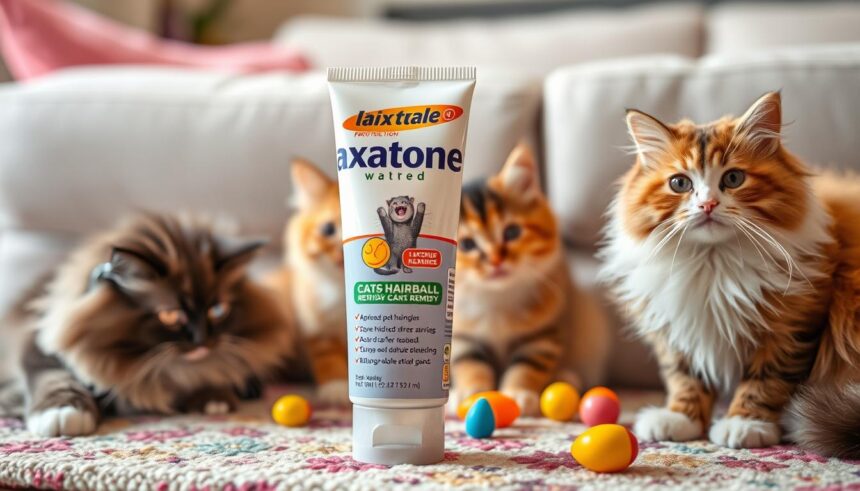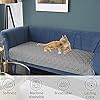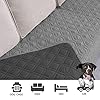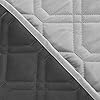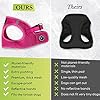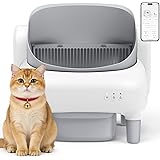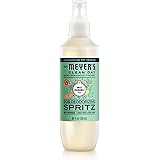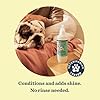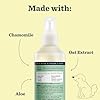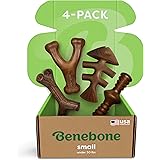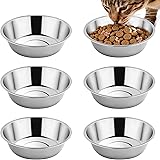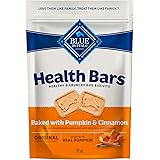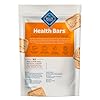What makes Laxatone a trusted hairball remedy for cats? It offers relief from cat constipation and is a reliable solution. Many cat owners face challenges in finding the right hairball solution for their pets. This can lead to worries about cat constipation relief.
Laxatone for cats is a gentle and effective formula. It has been recommended by veterinarians to improve digestion and provide hairball relief.
Key Takeaways
- Laxatone is a veterinary-recommended formula for hairball relief in cats.
- It is available in various flavors and forms to cater to different cat preferences.
- Laxatone helps improve digestion and provides cat constipation relief.
- It is a gentle and effective hairball remedy for cats.
- Regular use of Laxatone can help prevent hairballs and promote overall feline health.
- Laxatone is a popular choice among cat owners due to its ease of use and effectiveness as a hairball remedy for cats.
- It can be used as part of a comprehensive approach to maintaining a cat’s digestive health and preventing hairballs.
What is Laxatone?
Laxatone is a digestive aid for cats to prevent hairballs. It comes in flavors like maple or tuna to make it tasty for cats. With a 4.3 out of 5 rating, it’s a top choice for cat owners.
It’s the best laxative for cats, available in gels and chews. These are easy to use and stop hairballs. For all weights, give 1/2 – 1 teaspoon daily for 2 – 3 days, then 1/4 – 1/2 teaspoon 2 – 3 times a week.
Definition and Purpose
Laxatone helps cats get rid of and prevent hairballs. It’s made from natural ingredients, perfect for those who want a natural solution. New customers can save up to 40% on it, making it a budget-friendly option.
Product Types
Laxatone comes in gels and chews, making it easy to use and effective. Each 6 gram serving has 25 calories, which is low for cats. There’s a satisfaction guarantee, offering full refunds for non-prescription items within 90 days.
Laxatone is a top pick for cat owners seeking a natural hairball treatment. Its variety of products and affordable price make it a great choice for cats with hairball issues.
| Product Type | Price | Customer Rating |
|---|---|---|
| Gel | $14.99 | 4.3/5 |
| Chew | $14.99 | 4.3/5 |
How Laxatone Works
Laxatone is a well-known solution for preventing hairballs in cats. It helps keep their digestive system healthy. It works by making ingested hair slippery, so it can move through the body easily.
This stops hairballs from forming, a common problem in cats. The ingredients in Laxatone, like white petrolatum and soybean oil, are good for cats. They add essential fatty acids that help the hair move through the digestive system.
For more info on cat health, check out catsjoys.com. They cover topics like pet digestive health and feline gastrointestinal support.
Using Laxatone has many benefits for cats. It supports their digestive health and helps prevent hairballs. Here are some key advantages:
- Supports pet digestive health
- Provides feline gastrointestinal support
- Aids in cat hairball prevention
Laxatone is a safe and effective way to prevent hairballs in cats. It keeps their digestive system healthy. Knowing how Laxatone works helps cat owners make better choices for their pets’ health.
| Ingredient | Benefit |
|---|---|
| White Petrolatum | Lubricates ingested hair |
| Soybean Oil | Provides essential fatty acids |
Benefits of Using Laxatone for Cats
Laxatone for cats is a great tool for cat owners. It offers many benefits that help keep cats healthy. One big plus is that it works well as a hairball remedy for cats. It makes the digestive system slippery, which stops hairballs from forming.
This helps avoid constipation and other problems.
Some of the key benefits of using Laxatone for cats include:
- Prevention of hairballs, which can cause discomfort and health problems for cats
- Relief from constipation, dry cough, and occasional vomiting
- Support for digestive health, helping to maintain a healthy digestive system
Laxatone is gentle and simple to use. It’s perfect for cat owners who want the best for their pets. It comes in tasty flavors like malt or fish. This makes it easy to keep your cat’s digestive system healthy.
Adding Laxatone to your cat’s daily routine helps prevent hairballs. It also supports their digestive health. This gives you peace of mind and keeps your cat happy and healthy.
Recommended Dosage for Cats
Finding the right laxative for your cat is key. Laxatone, a well-known hairball remover, has been a favorite for over 35 years. Cats should get ½ to 1 teaspoon daily for the first 2 to 3 days. Then, reduce it to ¼ to ½ teaspoon 2 to 3 times a week.
Understanding pet digestive health is vital for a natural hairball treatment. Laxatone includes petrolatum, mineral oil, and soybean oil. These ingredients help prevent hairballs and support digestive health. It comes in a 4.25 oz (120.5 g) net weight. You can put the gel on your cat’s paws or nose to get them interested.
To get the best results, follow the guidelines for use and frequency. Here’s a simple outline:
- Initial period: ½ to 1 teaspoon daily for 2 to 3 days
- Maintenance period: ¼ to ½ teaspoon 2 to 3 times a week
Always check with a vet before trying new products, like Laxatone. By following the dosage guidelines and focusing on pet digestive health, you can keep your cat happy and healthy.
Laxatone vs. Other Hairball Remedies
Choosing a feline digestive aid can be tough for cat owners. Laxatone is a vet-recommended laxative that shines with its gentle yet effective formula. It stands out from other hairball remedies with its special blend of lubricants. This makes it a top pick for preventing cat hairballs.
Other popular hairball remedies include Cat Lax, Royal Canin Hairball Care, and Temptations Indoor Care. While they have their benefits, they might not work as well as Laxatone. For instance, Cat Lax needs to be given daily but doesn’t offer the same lubrication as Laxatone. Royal Canin Hairball Care has a special fiber blend but isn’t good for cats under a year.
Laxatone, however, can be safely given daily for hairball prevention. Its dosage can even be cut down to once a week after the first use. This makes it a convenient and effective choice for cat owners looking for a reliable digestive aid. As a vet-recommended laxative, Laxatone is a trusted option for preventing and treating cat hairballs.
The right hairball remedy depends on the cat’s specific needs. By weighing the pros and cons of each product, cat owners can make a smart choice. Laxatone’s unique blend of lubricants and vet approval make it a great option for those seeking effective and gentle hairball relief for their pets.
Potential Side Effects
Using laxatone for cats as a hairball remedy is common. But, it’s important to know about possible side effects. Cats might get diarrhea, bloating, or gas. These usually go away by themselves.
But, high doses can cause low potassium or high sodium levels. Always stick to the recommended dose. If you’re worried, talk to a vet. Laxatone’s effects last about 24 hours.
Laxatone can help with cat constipation. But, watch your cat closely for signs of blockage. Look for lethargy, not wanting to eat, or repeated vomiting. If you see these signs, get vet help fast.
| Side Effect | Description |
|---|---|
| Diarrhea | Loose or watery stools |
| Bloating | Discomfort or swelling in the abdominal area |
| Gas | Passing gas or flatulence |
| Low blood potassium levels | Potential muscle weakness or heart arrhythmias |
| High sodium blood levels | Potential seizures or coma |
Knowing laxatone’s side effects helps you choose the best for your cat. Always talk to a vet if you’re unsure about laxatone or your cat’s health.
How to Administer Laxatone
It’s easy to give Laxatone to your cat. Just make sure to use the right amount. Start with 0.5 to 1 teaspoon daily for 2 to 3 days. Then, cut it down to 0.25 to 0.5 teaspoon, given 2 to 3 times a week. For more details, check out this website.
Here are some tips for giving Laxatone:
- Choose a flavor your cat likes, like tuna or maple, to make it easier.
- Put the Laxatone on your cat’s paws or nose to get them to lick it off.
- Be patient and gentle to avoid stressing your cat.
Using the best laxative for cats keeps your cat’s pet digestive health in check. Laxatone is a top pick for natural hairball treatment. By following the dosage and how to give it, you can keep your cat healthy and happy.
Always talk to your vet if you’re worried about your cat’s health or using Laxatone.
Laxatone and Cat Breeds
Laxatone is a top pick for feline digestive aid among cat owners. It’s a vet recommended laxative that prevents and removes hairballs. Some cat breeds are more likely to get hairballs because of their fur and grooming habits.
Cats with long hair, like Persians and Maine Coons, need regular grooming. This can increase their risk of hairballs. Laxatone helps by making swallowed hair pass through the digestive system easily.
Here are some key points to consider when using Laxatone for different cat breeds:
- Long-haired breeds: 0.5 teaspoon to 1 teaspoon daily for the first 2 to 3 days, then reduce to 0.25 teaspoon to 0.5 teaspoon, 2 to 3 times per week
- Short-haired breeds: 0.25 teaspoon to 0.5 teaspoon, 2 to 3 times per week
- Senior cats: monitor closely for any adverse reactions and adjust dosage as needed
Laxatone is a vet recommended laxative that many cat owners trust. By following the right dosage and guidelines, you can keep your cat’s digestive system healthy. Always talk to your vet before starting any new medication or supplement, including Laxatone.
In conclusion, Laxatone is a great tool for managing hairballs and preventing them in various cat breeds. Knowing your cat’s breed needs and following the recommended guidelines can help keep their digestive system healthy and thriving.
Understanding Hairballs in Cats
Cats groom themselves, which can lead to eating loose hair. This can cause hairballs in their stomach, leading to cat constipation relief issues. About 50% of cats sometimes vomit hairballs, especially long-haired ones.
A hairball remedy for cats can help solve this problem. Veterinarians often suggest Laxatone for cats to help hair pass through their digestive system. It’s important to know why hairballs happen, like natural shedding and grooming habits.
Some key factors that contribute to hairballs in cats include:
- Shedding rates, which increase during warmer months
- Age, with older cats being more susceptible to hairballs
- Health conditions, such as allergies or fleas, which can increase grooming behavior
It’s important to recognize hairball symptoms to provide timely relief. Symptoms include vomiting, lethargy, and changes in bowel movements. By understanding hairball causes and symptoms, cat owners can prevent and treat them. Using laxatone for cats is a good hairball remedy for cats.
Alternatives to Laxatone
Looking for alternatives to Laxatone? There are many options that offer natural hairball treatment. These alternatives can be used with a balanced diet to improve pet digestive health.
Some cat owners like using natural remedies like olive oil or cat grass. These can be used with a best laxative for cats for a complete pet digestive health solution.
Other choices include prescription options from a vet. These might be better for serious hairball issues. But, always talk to a vet before starting any new medication to keep pet digestive health safe.
When looking at Laxatone alternatives, think about their pros and cons. The right best laxative for cats and natural hairball treatment can help your cat’s pet digestive health and cut down on hairballs.
| Remedy | Description | Benefits |
|---|---|---|
| Olive Oil | Natural lubricant | Aids in hairball passage |
| Cat Grass | Natural fiber source | Promotes digestive health |
| Prescription Options | Veterinarian-recommended | Effective for severe cases |
When to Consult a Veterinarian
As a cat owner, knowing when to get vet help is key. A vet recommended laxative can help with hairballs. But, knowing when to seek help is crucial.
If your cat keeps getting hairballs, it might mean there’s a bigger problem. This could be something a vet needs to check. They can help with digestive issues.
Look out for serious signs like unproductive retching, being very tired, or not wanting to eat. Also, if your cat vomits hairballs more than once a month, see a vet. They can check for digestive problems and suggest ways to prevent hairballs.
Hairballs can sometimes mean a bigger problem, like a blockage in the stomach. This is very serious and can be deadly if not treated. If your cat can’t eat, is gagging without vomiting, or is vomiting without hairballs, get emergency vet care.
Regular grooming, like daily brushing, can help prevent hairballs. Keep an eye on your cat’s behavior and health. Watch for changes in appetite, vomiting, or stool quality. Working with your vet and using a digestive aid can keep your cat healthy and prevent hairballs.
Customer Reviews and Experiences
Many cat owners have shared their positive experiences with laxatone for cats. They say it works well as a hairball remedy. They mention it helps with cat constipation relief and cuts down on hairballs.
People like how easy it is to use laxatone. They’ve seen a big improvement in their cat’s digestive health. For instance, some cats no longer have constipation or hairball problems after using laxatone.
Positive Feedback
- Effective in reducing hairballs and constipation
- Easy to administer
- Improves overall digestive health
Common Concerns
Even though laxatone gets great reviews, some owners worry about side effects or interactions with other meds. But, talking to a vet before using laxatone can help address these concerns.
Where to Buy Laxatone
Laxatone is easy to find, making it convenient for cat owners. It’s a top pick for those seeking a good laxative for cats. You can buy it online at Amazon or Petco, or in local pet stores. It’s known for its effectiveness in keeping cats’ digestive systems healthy.
Some popular places to buy Laxatone include:
- Online retailers: Amazon, Petco, Chewy
- Local pet stores: PetSmart, independent pet stores
When you buy Laxatone, make sure to follow the dosage instructions. This ensures your cat gets the best digestive health benefits. Laxatone is a trusted choice for cat owners looking for a reliable laxative.
Laxatone also comes with a satisfaction guarantee. This makes it a safe choice for cat owners. Its natural ingredients and gentle formula make it a top pick for natural hairball treatments.
| Product | Price | Availability |
|---|---|---|
| Laxatone Hairball Remedy | $11.99 | Online and in-store |
Conclusion: Is Laxatone Right for Your Cat?
Laxatone for Cats is a great way to help with hairballs and keep your cat’s digestive system healthy. It has special ingredients that help get rid of hairballs and keep the digestive system working well. Cats like the taste of Laxatone because it tastes like maple, making it easy to give to them.
Summary of Benefits
Using Laxatone can really help your cat. Here’s why:
- It stops hairballs and helps with relief
- It keeps your cat’s digestive system healthy
- Cats love the taste of Laxatone
- It’s easy to give to your cat every day or week
Final Recommendations
If your cat has trouble with hairballs or digestion, try Laxatone. It’s safe and works well, as many cat owners have found. Adding Laxatone to your cat’s care routine can help manage hairballs and improve their health.


